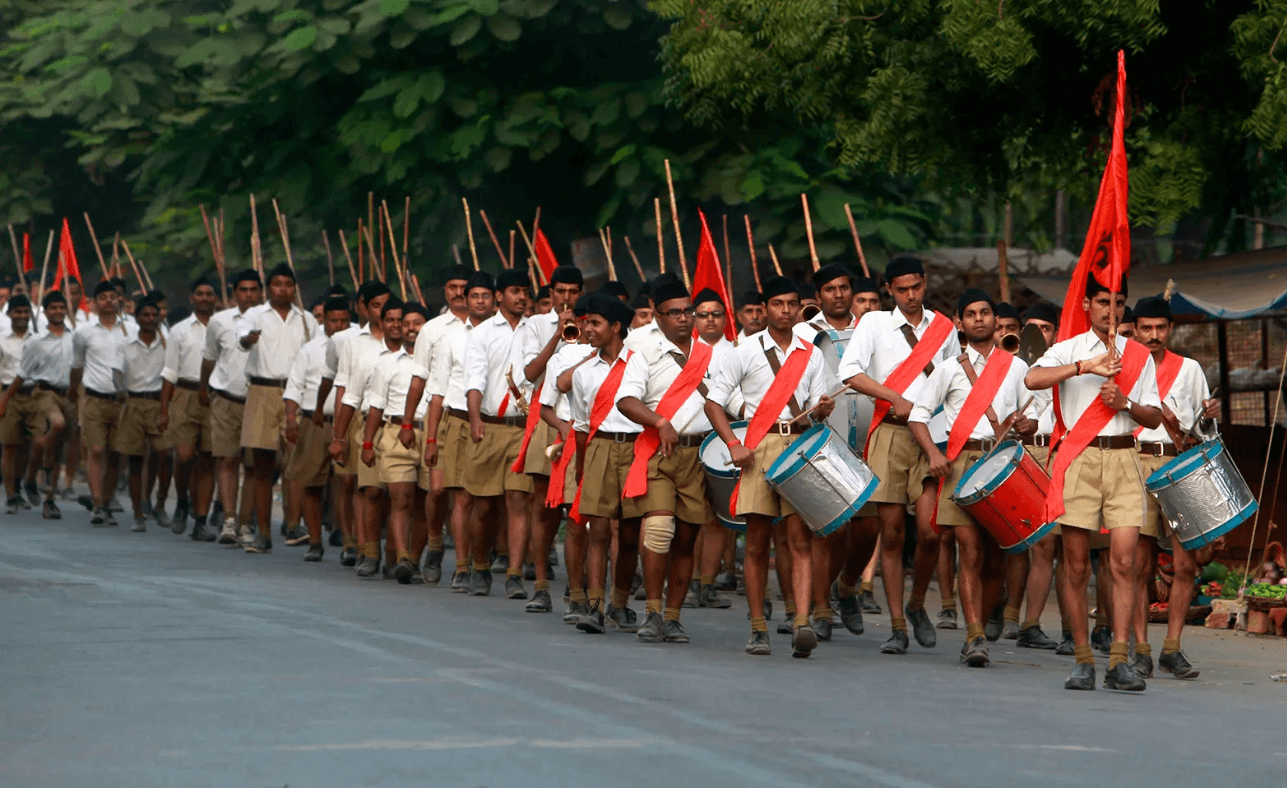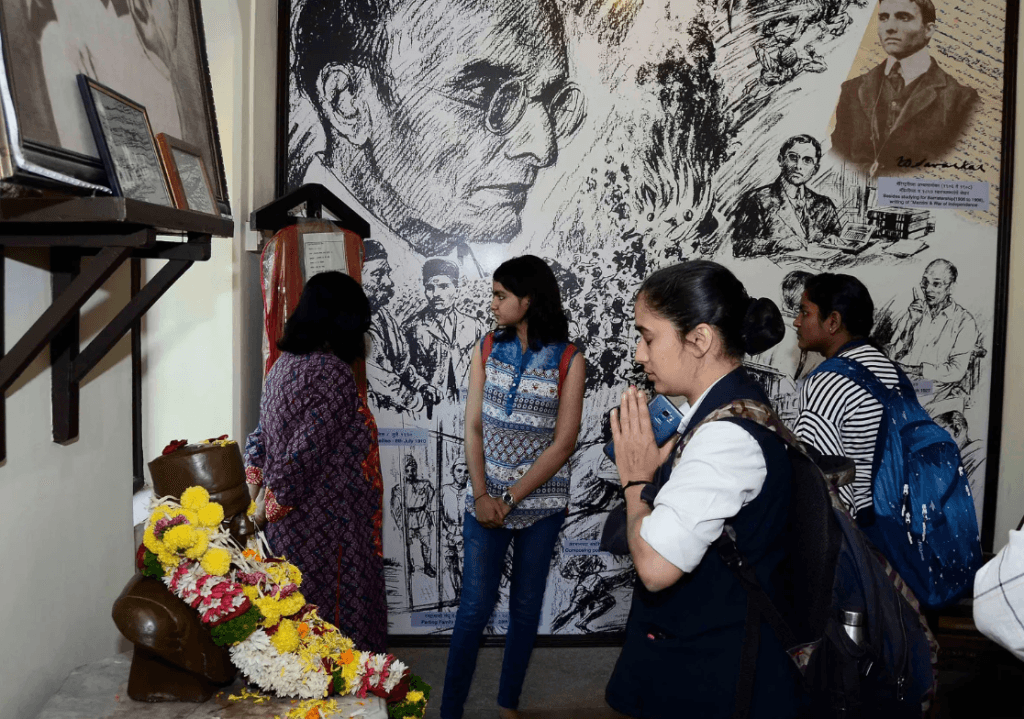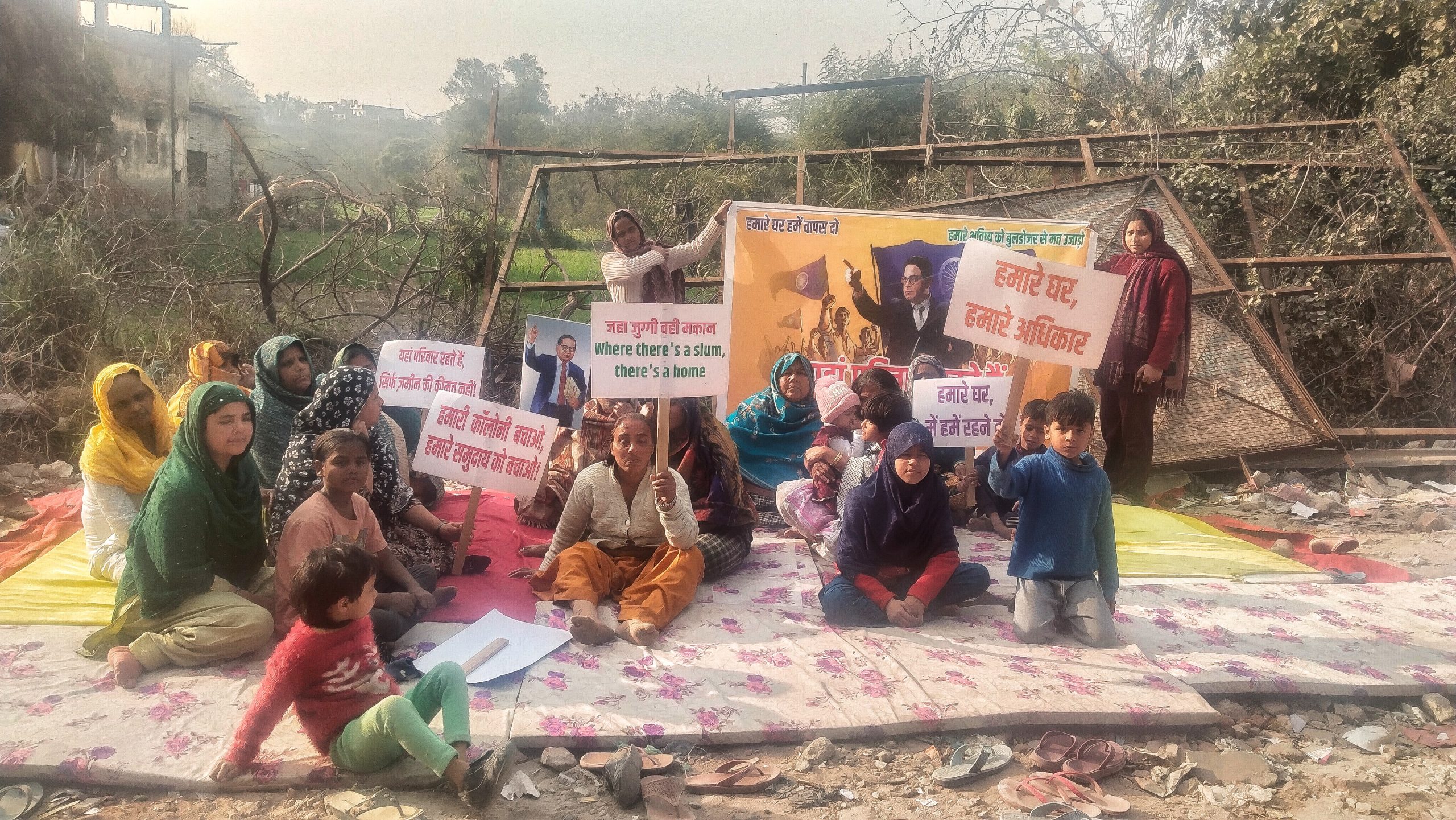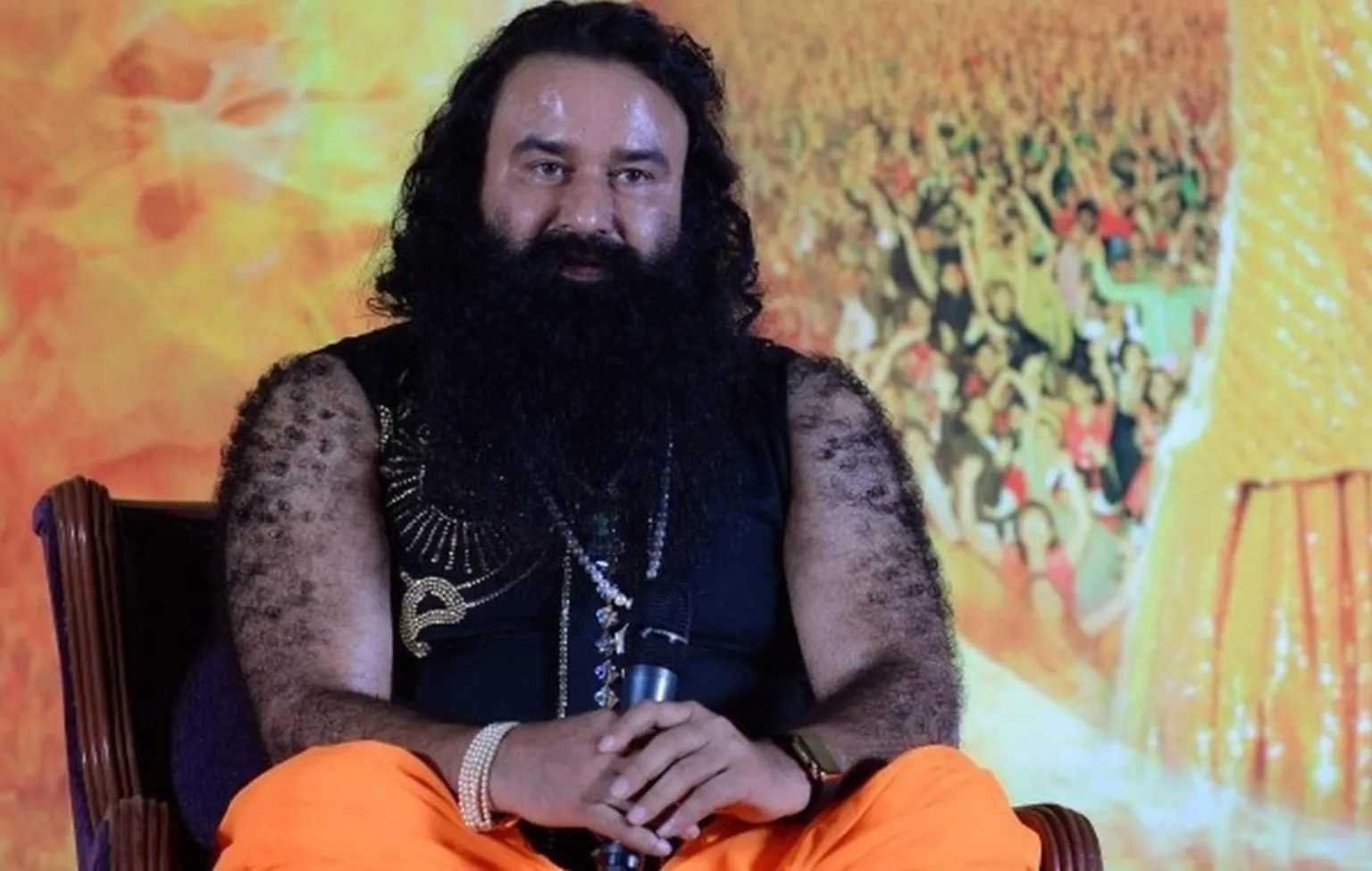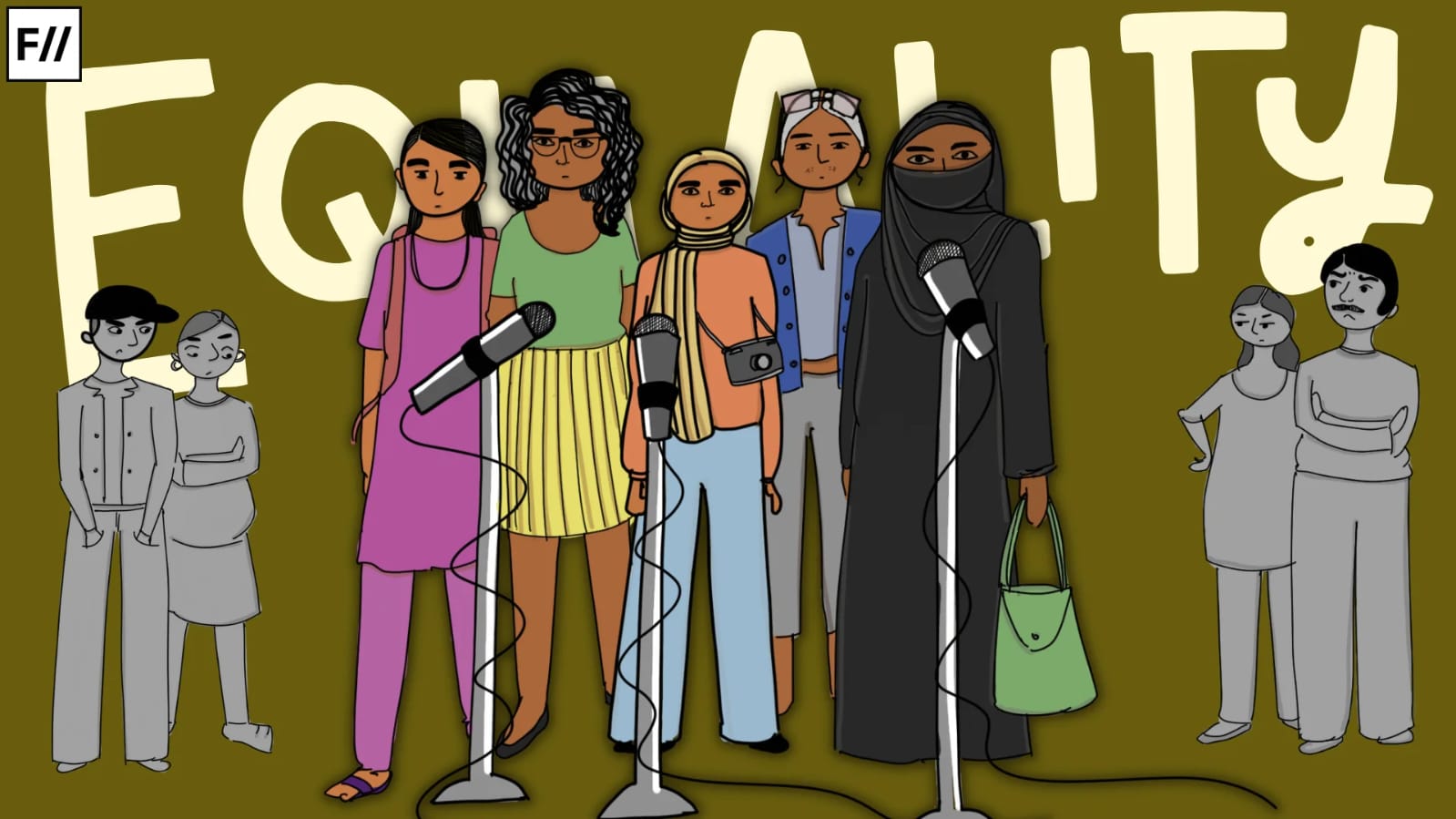Hindutva and feminism are political ideologies that are irreconcilably at odds. While feminists have steadfastly critiqued the far-right ideology, Hindutva has just as fervently rejected feminism, often as a Western concept or a corrupting influence on Indian women. However, the same proponents of Hindutva are now co-opting feminism and expressing deep concern for women’s rights, following the protest by an Iranian woman against her country’s moral policing of women’s attire.
Hindutva is inextricably tied to the patriarchy. The far-right ideology might have prominent women at the helm of its politics and dedicated women’s organisations, yet it is steeped in patriarchal norms, gendered roles and expectations, and misogyny. But the sudden favour feminism has gained among Hindutva ideologues is no surprise when viewed for what it truly is: an effort to piggyback their Islamophobia utilising feminism. It is confounding that the same forces that fail Indian women and deny them their autonomy are advocating for women in Iran.
On November 2, 2024, an Iranian student stripped down to her undergarments outside her university in Tehran, reportedly in protest against the harassment she faced by security forces for non-compliance with the country’s strict dress code for women. An Iranian student media outlet reported that the student was harassed by members of the Basij, a voluntary paramilitary group, for not wearing a hijab, which women are legally mandated to wear in the country.
The protesting student gained international recognition and her courage was lauded by many across the globe, but her protest was used by the Indian right-wing ecosystem to spew Islamophobic rhetoric. Hindutva’s newfound concern for women and the heralding of women’s resistance against oppressive structures cannot be considered in good faith. When viewed alongside Hindutva’s track record with women in India, a very different picture is painted.
The intersection of misogyny and islamophobia
While Hindutva groups tout ideas of women’s empowerment, the ‘empowerment,’ that Hindutva boasts is not rooted in freeing women from patriarchal structures and furthering the exercise of their autonomy. The ‘empowerment,’ is the radicalisation of young women for the benefit of the Hindutva political agenda, all the while reinforcing patriarchal structures and teaching these women to adhere to them.
In camps conducted for girls by the Durga Vahini, the women’s wing of the Vishwa Hindu Parishad, girls are taught traditional gender roles alongside anti-Muslim rhetoric. In 2023, a sub-wing of the Rashtriya Swayamsevak Sangh (RSS)’s women’s wing started the Garba Sanskar campaign, wherein women were taught to instil sanskar (morality) and cultural pride in their fetuses while pregnant.
Hindutva also uses women to further alarmist Islamophobic propaganda about Muslim men posing a threat to Hindu women by subjecting them to violence or exploiting their naivety for their political and ideological benefit. This idea of the naïve, vulnerable woman being exploited by the demonised other, goes a long way in a deeply patriarchal society that views women as less than others and places great value on women performing respectability and upholding the family honour.
Hindutva propaganda such as Love Jihad, inter-faith relationships posing a danger to Hindu women’s lives, or ideas that Hindu women are likely to be disproportionately victimised by Muslims, all work by overlapping Islamophobia with misogyny and the desire to exert control over women.
Love Jihad, the Hindutva conspiracy theory that Muslim men are pursuing relationships with Hindu women to convert them to Islam in a systemic and coordinated effort is as much misogyny as it is Islamophobia. Women, as a result of such propaganda, are infantilised, stripped of their autonomy, and controlled in the name of protecting them. Regressive legislation like anti-conversion laws and Uttarakhand’s Uniform Civil Code work on a similar principle: exerting control over women while perpetuating Islamophobia.
Women’s role, in the Hindutva imagination, is limited to performing respectability and relegating their autonomy to external forces for their ‘protection.’ While Hindutva seeks to ‘protect,’ Hindu women for its political gain, it simultaneously seeks to ‘save,’ Muslim women for the same reason. The caveat, however, is that Hindutva’s interest in ‘saving,’ Muslim women is entirely dependent on who the perpetrator of their oppression is. Hindutva shuttles between positioning themselves as their saviours and oppressing them themselves, depending on context.
‘Saving’ muslim women
Hindutva, in both instances, denies women their autonomy, infantilising them, and propagating other sexist and misogynistic ideas. Further, Hindutva’s need for ‘saving,’ Muslim women is limited to when the perpetrators of misogyny and the enforcers of patriarchy against Muslim women are fellow Muslims. The Palestinian genocide has seen millions of women killed, maimed, displaced, and forced to live in horrific conditions, but Hindutva ideologues not only refuse to speak against the ongoing genocide, they align themselves with Israel. Without the potential to further Islamophobic narratives, Hindutva’s keenness to advocate for women is non-existent.
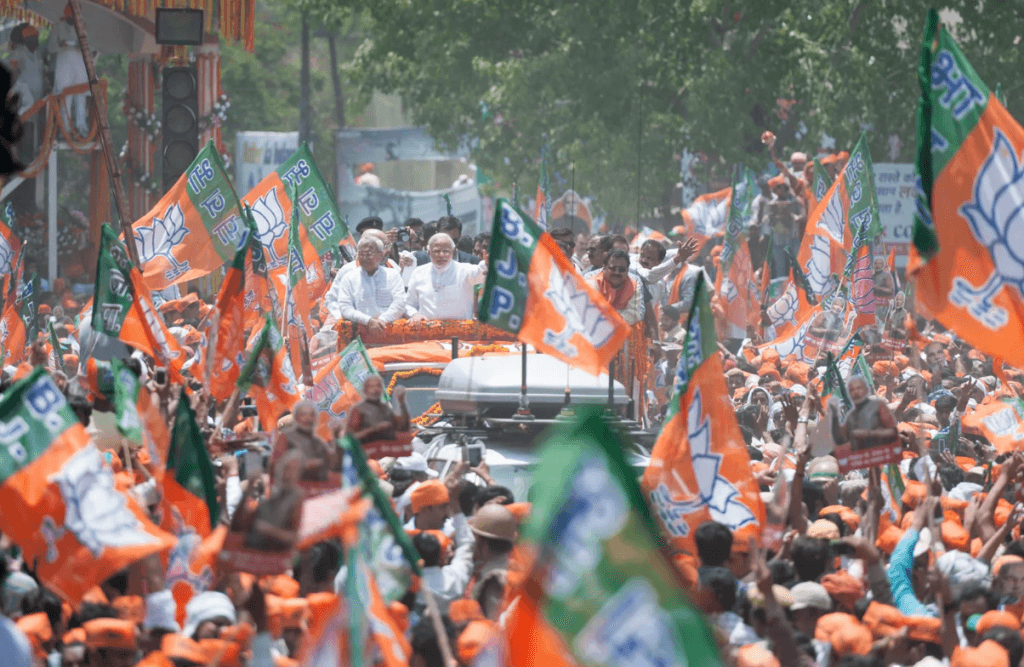
The student in Iran was denied access to her place of education due to how she was dressed. In India, Muslim women and girls have been denied access to their classrooms by Hindutva forces due to how they are dressed. Hindutva proponents, with no regard for women’s autonomy or right to choose, force Muslim women in India to give up the hijab.
In 2022, a row erupted over Muslim students wearing hijabs in educational institutions after a college in Karnataka’s Udupi barred six students wearing headscarves from entering the premises. The students protested against this discrimination but were met with counter-protests staged by Hindutva students to ban the hijab. Following this, the then BJP-led state government issued an order banning the hijab from classrooms.
A TNM investigation found that the counter-protests by Hindutva students in Udupi weren’t spontaneous and were instigated by a local Hindutva outfit called Hindu Jagarana Vedike. A People’s Union of Civil Liberties – Karnataka (PUCL-K) report found that 1010 Muslim girls who wear the hijab dropped out as a consequence of the ban. After the ban was imposed at Mangalore University and affiliated colleges in the same year, 16 per cent of enrolled female Muslim students dropped out.
But Hindutva’s anti-women and Islamophobic rhetoric isn’t just limited to the issue of the hijab. When the 11 convicts in the Bilkis Bano rape case were released in 2022, they were felicitated and garlanded at the Vishwa Hindu Parishad’s office. An ideology that allows its adherents to unabashedly felicitate rapists, and by extension, condone the horrific sexual violence committed by them, has no right to speak about feminism, women’s rights, or empowerment.
Apart from perpetrating Islamophobia, selective and performative Hindutva hand-wringing over Muslim women’s oppression helps to distort the reality of oppression and patriarchy within Hinduism and position women’s subjugation as a feature unique to Islam. Further, when it comes to misogyny Indian women are subjected to in online spaces, the most egregious perpetrators are often Hindutva trolls.
The most recent example of such policing and sexism online occurred over Diwali, when many women were slut-shamed for their Diwali outfits by users on X (formerly Twitter) for being too revealing, with an unfortunate, tedious, and sexist discussion about skimpy blouses and how women should dress raging for days. This, regrettably, is only one of many such instances. Outrage over dance performances by women in colleges has also been simmering online, and absurdly, the same Hindutva accounts that were advocating for Iranian women and against moral policing were shaming and policing Indian women.
Further, women who are anti-Hindutva are subjected to bullying and vile sexual harassment routinely for speaking against the ideology. Organised attacks by Hindutva trolls and death and rape threats are a quotidian feature of discussing anti-Hindutva politics online. On November 8, 2024, journalist Rana Ayyub was doxxed by Hindutva handles, following which she was incessantly harassed by the far-right. Instances such as this are the norm, rather than the exception, for women who resist Hindutva.
While discourse about patriarchy within religions is necessary, the voices that must be centred in discussing patriarchy within Islam should be that of Muslim women. Every woman, undoubtedly, should be free to choose what to wear for herself. States shouldn’t be allowed to mandate what women must wear, but states and political groups also should not be allowed to mandate what women must not wear.
Informed critique of choice feminism and its shortcomings is not only fair but necessary. However, the one thing for which there is no room in this conversation is Hindutva voices. Women’s struggle is not for proponents of an extremist ideology to co-opt and use to peddle their Islamophobia. An ideology like Hindutva that is rooted in the violent oppression and othering of Muslims, a marginalised group, can never stand up for another marginalised group: women.
About the author(s)
